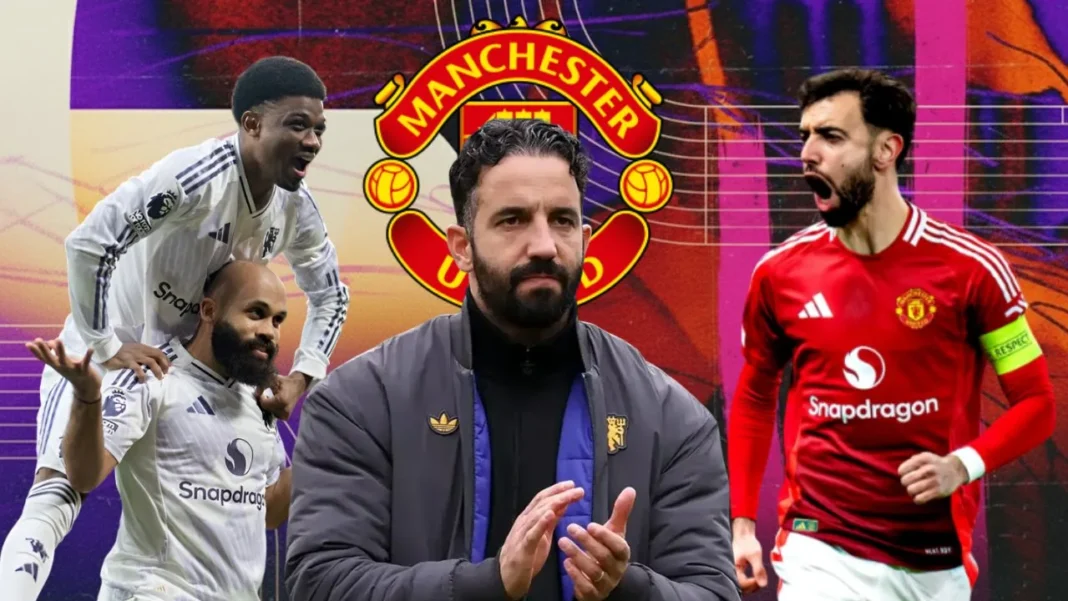Nine years. Think about that for a moment. Nine years since Manchester United last won at Anfield. In that time, managers have come and gone, squads have been rebuilt and rebuilt again, and Liverpool have transformed from challengers into champions and back into challengers. But through it all, that particular psychological barrier remained intact, until Sunday afternoon, when Ruben Amorim’s side finally broke through with a 2-1 victory that felt both monumental and, somehow, entirely unexpected.
On paper, it’s three points. In reality, it might just be the moment when Amorim’s United finally found something resembling a pulse.
The Tactical Gamble That Paid Off
As things were, United didn’t win this match by outplaying Liverpool in any conventional sense. They didn’t dominate possession, they didn’t control territory, and if you looked at the expected goals tally, you’d probably assume Liverpool cruised to victory. But football, as we’re constantly reminded, isn’t played on spreadsheets.
Amorim made a call that raised eyebrows before kick-off: Matheus Cunha started ahead of Benjamin Sesko, despite the latter’s recent form. The reasoning, as Amorim explained afterwards, was rooted in what Cunha brings to the table- that ability to carry the ball, to link play, to give United an outlet against Liverpool’s relentless press. And crucially, it worked.
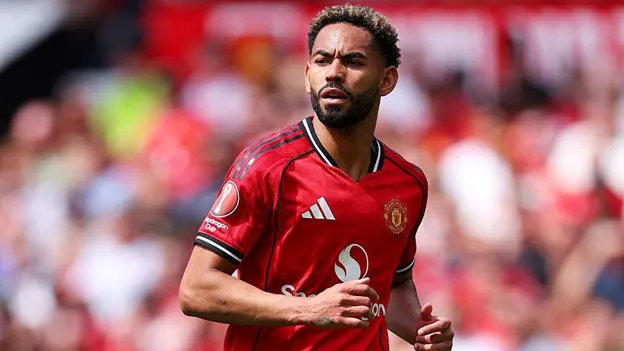
United’s approach was refreshingly direct, almost old-school in its simplicity. Senne Lammens, the young Belgian keeper who’s quickly becoming one of the more intriguing stories at the club, would launch it long. United’s midfielders would swarm the second ball. And suddenly, they’d be behind Liverpool’s high line, creating exactly the sort of chaos that this United side thrives on.
It was pragmatic, it was unglamorous, and it was exactly what the moment demanded. There’s a maturity in that kind of tactical flexibility that United have sorely lacked in recent years, the ability to read a game, to understand what’s required, and to execute it without getting precious about philosophy or identity.
Maguire’s Moment
And then there’s Harry Maguire. If you’d written this script three years ago, you’d have been laughed out of the room. The man who became something of a punchline, whose every mistake was dissected and memed into oblivion, rose highest to head home Bruno Fernandes’ cross and secure the points. The symbolism was almost too perfect.
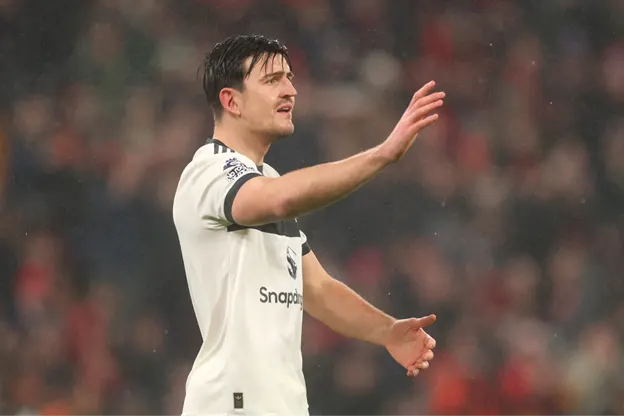
Maguire’s journey back from the brink is one of those stories that reminds you why football still captures our imagination. He could have wilted. He could have demanded a move, sought refuge elsewhere, or disappeared into the background. Instead, he stayed, he fought, and he’s somehow emerged as something approaching a cult hero. That header wasn’t just a goal- it was vindication, redemption, and a giant middle finger to everyone who wrote him off.
There’s something deeply human about watching someone refuse to accept the narrative that’s been written for them. Maguire’s performance on Sunday, defensively solid, commanding in the air, and ultimately decisive, felt like the culmination of a personal campaign that’s been waged largely out of the spotlight.
The Lammens Factor
Speaking of intriguing storylines, let’s talk about Senne Lammens. The 22-year-old Belgian arrived without much fanfare, but his impact has been immediate and, frankly, quite striking. His path to the position is almost cinematic; he started as a youth striker in Belgium before someone noticed he had hands like shovels and the reflexes to match.
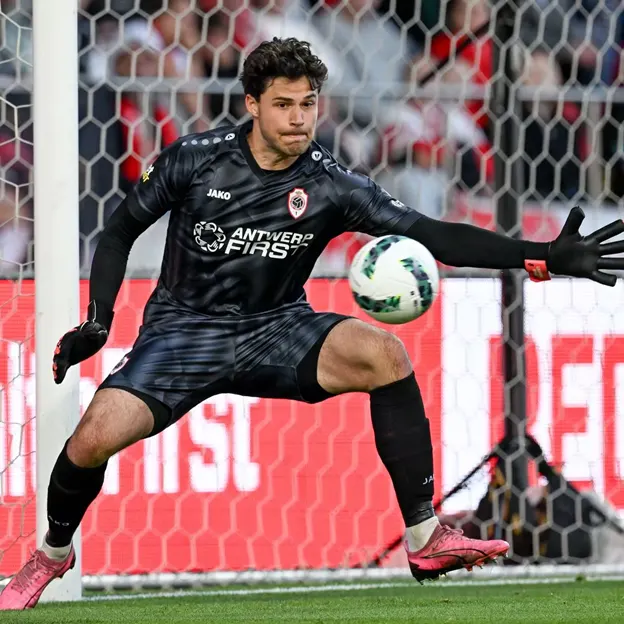
What stands out isn’t just his shot-stopping, though that’s been impressive. It’s his distribution, his willingness to play aggressively, his command of the penalty area. There are whispers around Old Trafford that he’s got a bit of Peter Schmeichel about him; not in style, necessarily, but in presence. That’s high praise, perhaps premature, but you can see why people are getting excited.
The late-night training sessions, the obsessive focus on improvement, these are the details that separate prospects from genuine talents. Lammens is still raw, still prone to the occasional howler that comes with youth and inexperience. But there’s something there, a foundation that United haven’t had between the posts for longer than they’d care to admit.
Cunha, Mbuemo, and the Chemistry Experiment
United’s attack remains very much a work in progress, but promising signs are emerging from the Cunha-Bumo partnership. Cunha, playing that withdrawn No. 10 role, hasn’t registered a goal or assist yet, but his influence runs deeper than the stat sheet suggests. He’s become a dressing-room presence, someone willing to take responsibility, to demand the ball in tight spaces, to carry the weight of expectation.
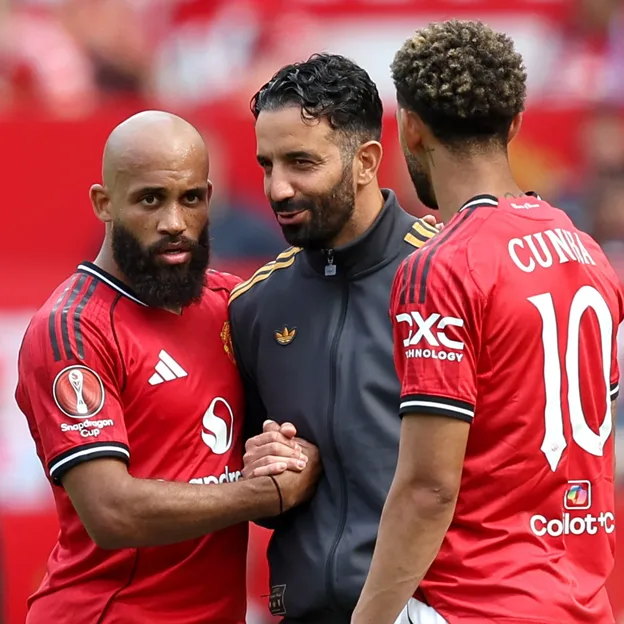
Mbuemo, by contrast, is quieter, more reserved, but no less important. The two represent different archetypes, different approaches to the game, and somehow, Amorim is finding ways to make it work. It’s an odd couple pairing that might just develop into something special- if United can find the consistency to build on it.
And then there’s Amad Diallo at right wingback, which is either a stroke of genius or a desperate gamble, depending on your perspective. Previously seen as a forward, Diallo has taken to the deeper role with surprising effectiveness. His combination play with Bumo caused Liverpool’s left side all sorts of problems, and in possession, he’s providing the kind of width and thrust that United have badly needed.
The defensive side of his game? That’s still a work in progress, and there will be matches where he gets exposed. But the club is clearly invested in the experiment- there’s a genuine belief that Diallo could develop into one of the Premier League’s good wingbacks. It’s ambitious, perhaps overly so, but at least it’s a plan.
The Brighton Test
Now comes the hard part. United’s Achilles heel in recent seasons hasn’t been the inability to win big matches; it’s what happens afterwards. The false dawns, the momentum squandered, the inevitable letdown. Brighton at Old Trafford is precisely the kind of fixture where United have historically come unstuck.
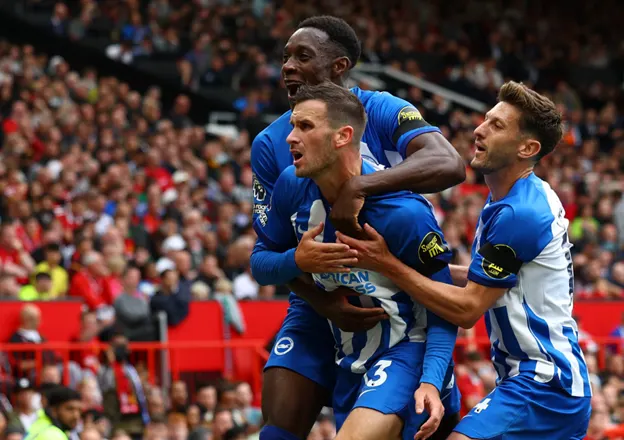
Fabian Hurzeler’s Brighton side is organised, methodical, and ruthlessly efficient at exploiting disorganisation. They beat United earlier this season in a match that represented one of the low points of Amorim’s tenure so far. The parallels are uncomfortable: big win at a rival, confidence high, pressure to maintain momentum, followed by a home fixture against a well-coached side that doesn’t fear the occasion.
The players know it. The staff know it. The fans certainly know it. This is where United’s season could genuinely shift, or where it could revert to type. Amorim has the benefit of focused training time; no European distractions, no midweek fixtures, but that cuts both ways. There are fewer excuses now, fewer places to hide.
The Bigger Picture
United’s absence from European competition is both a blessing and a curse. More time on the training pitch means Amorim can drill his ideas, work on patterns, and address the tactical deficiencies that have plagued the side. But it also means commercial pressures, hence the noise about potential friendlies in Saudi Arabia, which Amorim acknowledged with a weary pragmatism that suggested he understands the reality of modern football, even if he doesn’t particularly like it.
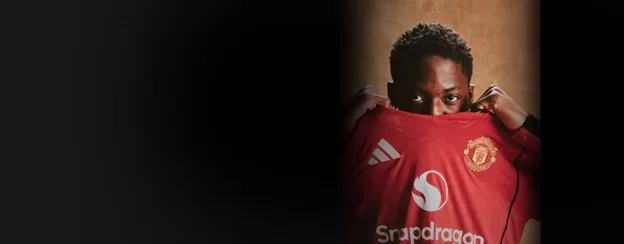
The Anfield win matters because it’s more than three points. It’s a psychological barrier broken, a monkey off the back, a statement that this United side might, just might, be capable of surprising us. But one result doesn’t make a trend, and Amorim is experienced enough to know that.
What Happens Next
The coming weeks will tell us whether this was a genuine turning point or just another false dawn in a season full of them. Can United maintain this tactical flexibility against different opponents? Can Maguire continue his redemption arc? Will Lammens prove to be the long-term answer in goal? Can Diallo develop into that good wingback, or will his defensive frailties be exposed?
These are the questions that will define Amorim’s 2025-26 season in charge. The Anfield victory has bought him time, goodwill, and perhaps most importantly, belief. But belief is fragile, especially at a club where the weight of expectation can crush even the most promising shoots of progress.
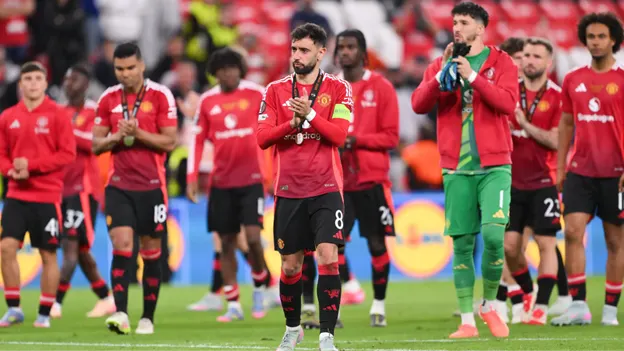
I’ve seen enough football to know that one win, however significant, doesn’t fundamentally change anything. But sometimes, just sometimes- it’s the spark that lights something bigger. Whether United can turn this ember into a fire remains to be seen. Brighton, and the fixtures that follow, will provide the answer.
For now, though, United can enjoy a rare moment of satisfaction. Nine years is a long time to wait. They’ve earned the right to savour this one.

